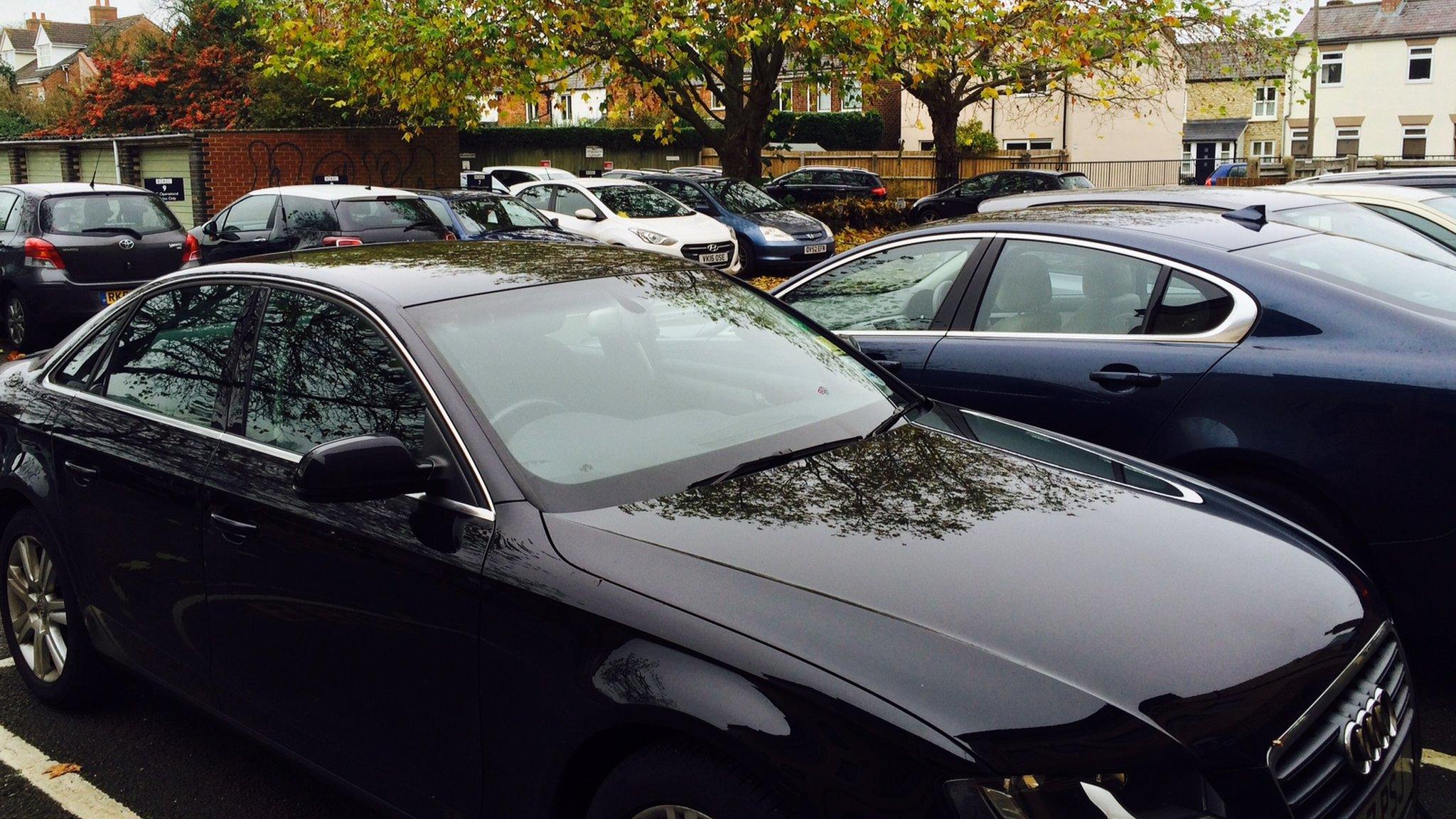Oxford traffic: Workplace parking levy plan extended across city
- Published
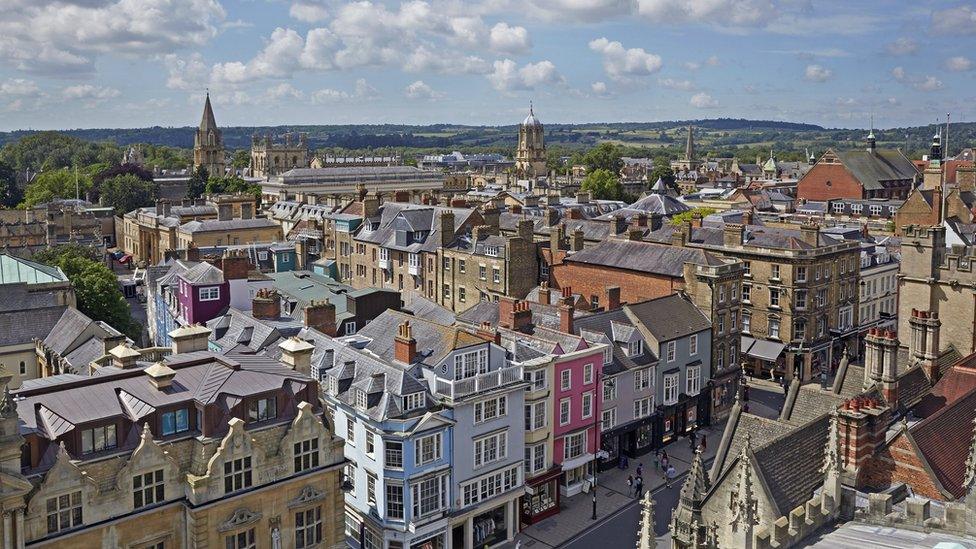
A planned workplace parking levy will now cover the whole city rather than the previously anticipated zone
All businesses with 11 or more staff parking spaces in Oxford would need to pay a charge of between £400 and £600 under new plans unveiled by councils.
Six new traffic filters would be set up across the city and a planned Zero Emissions Zone would include the whole city centre, rather than a pilot area.
The plans are stronger than ones proposed by Oxfordshire County Council and Oxford City Council in 2019.
A consultation starts in the summer. Measures could begin in 2023 or 2024.
The planned workplace parking levy area initially covered about half of the city's spaces buut that has been significantly extended.
Traffic filters could be placed on Hythe Bridge Street, Thames Street, Marston Ferry Road, St Cross Road, St Clements and Hollow Way.
They would create roads that can only be used by certain types of transport, such as buses, cyclists and pedestrians.
The councils said they hoped the plans would make buses the fastest and easiest option for commuters, improve cycling and walking and cut pollution.
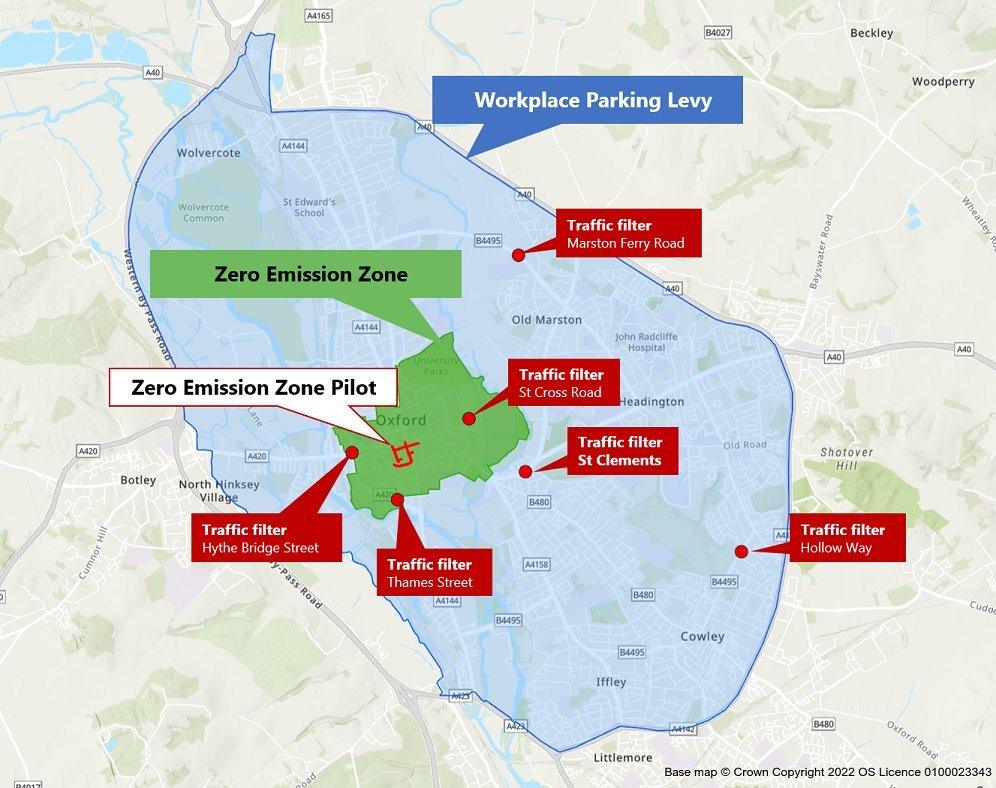
The new plan - a stronger version than one proposed in 2019 - was unveiled on Friday
Duncan Enright, the county council's cabinet member for travel and development strategy, said the proposals would help the city "move towards a progressive transport network" and "improve the quality of all our lives".
He said the authorities "intend to work with key partners, including the city's universities, businesses and bus operators".
A city councillor said she was "very angry" by the inclusion of the Marston Ferry Road bus gate.
Mary Clarkson, cabinet member for culture, tourism and leisure, said she was "told over a year ago" that it would not be continued "as there wasn't enough research to support it".
"It's back and there's still no evidence," she tweeted.

Follow BBC South on Facebook, external, Twitter, external, or Instagram, external. Send your story ideas to south.newsonline@bbc.co.uk, external.
- Published11 January 2022
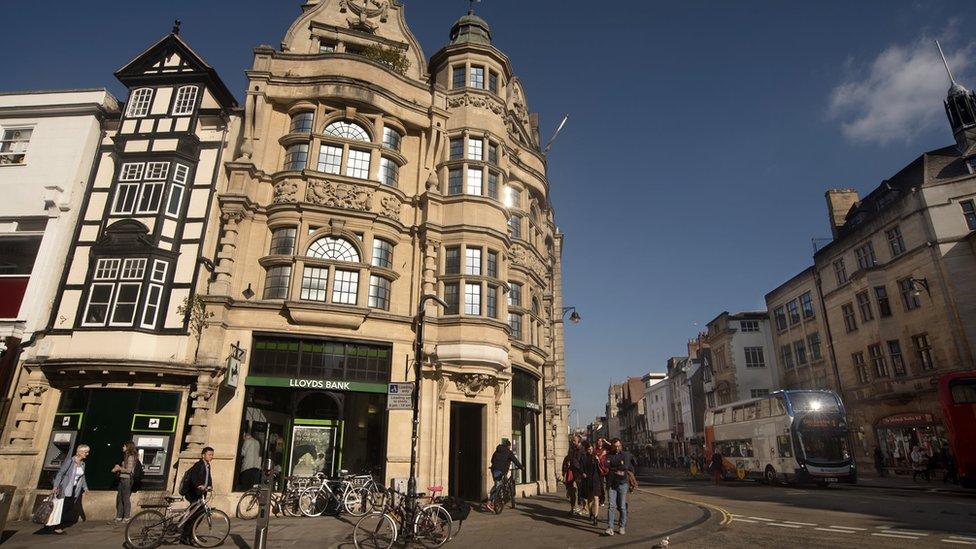
- Published22 November 2019
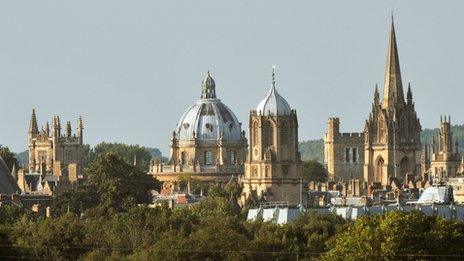
- Published18 September 2019
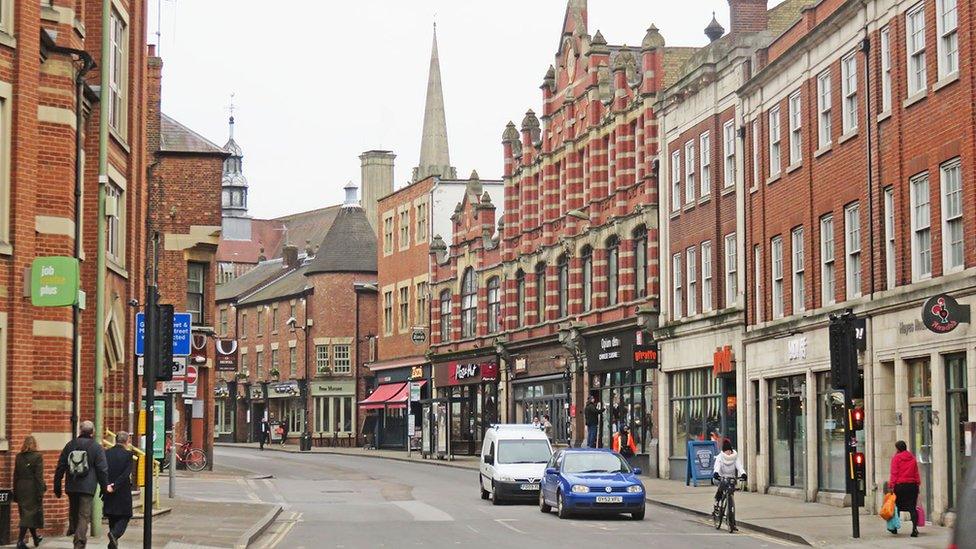
- Published15 November 2016
